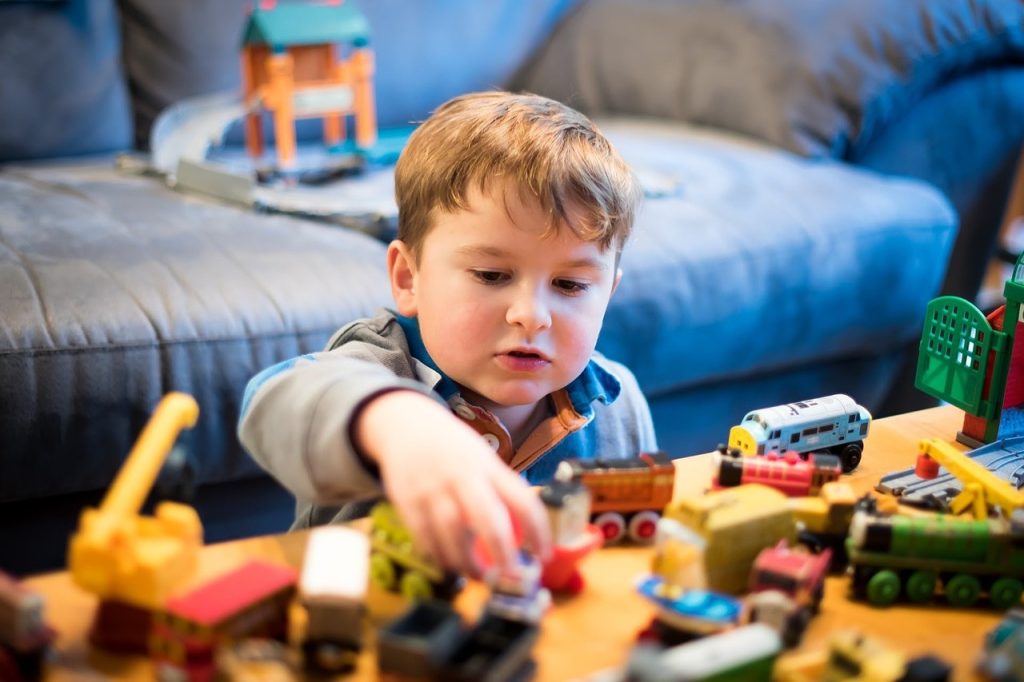Parenting comes with many responsibilities and challenges. As parents, we often find ourselves worrying about whether we are providing everything our children need. We want to ensure they are healthy, educated, and have a bright future. While these are important, there is one essential element that stands above all others: emotional support.
Emotional support is the foundation that nurtures a child’s mental, emotional, and social development. It is the cornerstone of their sense of security, self-worth, and ability to navigate the world confidently. In this blog, we will explore why emotional support is so vital, how it impacts a child’s growth, and practical strategies parents can use to ensure their children feel emotionally supported.

What is Emotional Support?
At its core, emotional support means being present for your child emotionally. It involves acknowledging and validating their feelings, offering encouragement, and being a consistent source of empathy and understanding. It goes beyond simply meeting their basic needs like food, shelter, and education; it’s about nurturing their mental and emotional well-being.
Children are constantly developing emotionally, and they rely heavily on their parents to guide them through their emotions. Emotional support helps them understand how to express and manage their feelings, while also feeling secure in the knowledge that their parents love them unconditionally.
Without emotional support, children can feel isolated, anxious, or confused about their emotions. With it, they thrive—developing strong self-esteem, emotional intelligence, and the resilience they need to face life’s challenges.
The Psychological Impact of Emotional Support
1. Building Confidence and Self-Esteem
One of the most profound effects of emotional support is the development of confidence and self-esteem. When parents are emotionally available, children feel validated and worthy. This sense of worth helps them build confidence, enabling them to tackle new challenges and take risks without fear of failure.
For example, when a child is learning to ride a bike, they may be scared of falling. A parent who offers emotional support by acknowledging the child’s fear and providing reassurance encourages the child to keep trying, regardless of initial failures. Over time, this builds confidence not only in riding the bike but also in approaching other challenges in life.
Children who grow up in emotionally supportive environments are more likely to feel capable and empowered. They believe in their ability to succeed because they know they have a strong emotional foundation to fall back on.
2. Emotional Regulation and Intelligence
Emotional support also plays a critical role in helping children develop emotional regulation and intelligence. When parents acknowledge their child’s feelings and help them navigate difficult emotions, they teach them how to manage their emotions in healthy ways.
For instance, when a child is angry or frustrated, instead of punishing them or dismissing their feelings, a supportive parent helps the child identify and understand the emotion. They might say, “I can see you’re feeling angry right now. Let’s talk about why that is and how we can work through it.”
This teaches the child that emotions are normal, and more importantly, that they can be managed. This process is essential in developing emotional intelligence, which is the ability to recognize, understand, and manage one’s emotions, as well as the emotions of others.
Children who learn emotional regulation from their parents are better equipped to handle stress, communicate effectively, and build strong relationships throughout their lives.
3. Strong Parent-Child Bond
The emotional connection between a parent and a child is perhaps the most important relationship a child will ever have. Emotional support strengthens this bond, fostering trust and open communication. When a child knows that their parents are emotionally available and supportive, they are more likely to confide in them and seek guidance.
This bond becomes especially important during adolescence—a time when children face increased emotional and social pressures. Teenagers are more likely to face issues like peer pressure, identity challenges, and emotional turbulence. Having a strong emotional connection with their parents can provide them with the security they need to navigate these challenges.
Moreover, a strong parent-child bond promotes a lifelong relationship built on mutual respect and understanding. When parents are emotionally supportive, children learn that they can trust their parents not just in childhood, but throughout their adult lives as well.

The Difference Between Emotional and Material Support
In modern society, there’s often a temptation to equate good parenting with providing material things—new toys, expensive gadgets, or the latest clothes. While these things can bring temporary happiness, they do not have the lasting impact that emotional support provides.
Material support cannot substitute emotional care. A child might be surrounded by material comforts, but if they lack emotional connection with their parents, they may still feel lonely or misunderstood. On the other hand, a child who receives consistent emotional support from their parents feels secure and valued, even if they have fewer material possessions.
Emotional support feeds the soul. It’s what helps children grow into confident, emotionally intelligent, and resilient adults. While material gifts can be part of showing love, it’s the emotional presence and attention that leave a lasting impact.
Practical Ways to Provide Emotional Support
1. Active Listening
One of the simplest yet most powerful ways to provide emotional support is through active listening. This means giving your child your full attention when they talk to you, without distractions, interruptions, or judgment. It involves not only hearing their words but also understanding their feelings and responding with empathy.
For example, if your child is upset after a bad day at school, instead of dismissing their feelings or immediately offering solutions, listen attentively. Ask questions like, “How did that make you feel?” or “What do you think could help you feel better?” This allows your child to feel heard and understood, which is vital in building their emotional security.
2. Validate Their Emotions
Children often experience big emotions, and it’s important for parents to validate these feelings, no matter how small or irrational they may seem. Validation doesn’t mean agreeing with everything your child says or does, but rather acknowledging that their feelings are real and important.
For instance, if your child is crying because their toy broke, instead of saying, “It’s just a toy, don’t cry,” you might say, “I understand you’re upset because your toy broke. It’s okay to feel sad about that.” By validating their emotions, you show your child that it’s normal to have feelings and that their emotions matter.
This validation helps children develop emotional self-awareness and encourages them to express their feelings in healthy ways.
3. Offer Reassurance and Encouragement
Children look to their parents for reassurance, especially when they’re feeling uncertain or scared. Offering encouragement during difficult times helps children build confidence and resilience.
For example, if your child is nervous about starting a new school, offer reassuring words like, “I know you’re feeling nervous, but I believe in you. You’re going to do great.” This type of emotional support helps your child feel more confident in facing new situations, knowing that you’re there to support them, no matter what.
4. Spend Quality Time Together
In today’s fast-paced world, finding time to spend with your children can be challenging. However, spending quality time with your child is one of the best ways to show emotional support. It doesn’t have to be a grand outing—sometimes the simplest activities, like playing a game, reading a book, or just talking, can create deep emotional bonds.
Make an effort to engage in activities your child enjoys and that allow for meaningful interactions. Whether it’s cooking together, going for a walk, or just sitting down for a conversation, these moments create lasting memories and strengthen your emotional connection.
5. Be Patient and Understanding
Children, especially young ones, can often act out or test your patience. However, it’s important to remain calm and patient, even when their behavior is frustrating. Emotional support involves understanding that children are still learning how to manage their emotions and that they need guidance in this area.
When your child is having a tantrum or is upset, instead of reacting with anger, try to understand the underlying emotions. Offer calm reassurance and help them navigate the situation. This teaches your child that it’s okay to have difficult emotions, and that they can rely on you to help them through it.
6. Lead by Example
Children learn a lot by observing their parents’ behavior. If you want your child to develop emotional intelligence and resilience, model these traits in your own life. Show them how you manage stress, express your feelings, and handle difficult situations calmly.
For example, if you’re feeling stressed after a long day, instead of snapping at your child, express your feelings in a healthy way by saying, “I’ve had a tough day, and I’m feeling a little overwhelmed. Let’s take a few deep breaths together to calm down.” By modeling emotional regulation, you teach your child valuable lessons on how to manage their own emotions.

Long-Term Benefits of Emotional Support
Providing emotional support to your child doesn’t just have short-term benefits—it also has profound long-term effects on their overall development and success in life. Here are some of the long-term benefits:
1. Academic Success
Children who receive emotional support from their parents tend to perform better academically. This is because they have a strong sense of self-worth and confidence in their abilities. They are more likely to approach schoolwork with a positive attitude and are less likely to be overwhelmed by challenges or setbacks.
Additionally, emotionally supported children are better able to focus, manage stress, and persevere through difficult tasks, all of which contribute to academic success.
2. Better Social Relationships
Emotionally supported children often have better social skills and are able to form strong, healthy relationships with others. They learn how to communicate effectively, resolve conflicts, and show empathy—skills that are invaluable in building friendships, family relationships, and even romantic partnerships later in life.
3. Mental and Emotional Resilience
Life is full of ups and downs, and emotionally supported children are better equipped to handle adversity. They develop resilience, which allows them to bounce back from challenges and setbacks without feeling defeated. This resilience is crucial for mental and emotional well-being, as it helps children (and later, adults) cope with stress, anxiety, and other emotional difficulties.
4. Lifelong Happiness and Well-Being
At the end of the day, emotional support from parents lays the foundation for lifelong happiness and well-being. Children who grow up feeling loved, understood, and supported are more likely to have a positive outlook on life. They are also more likely to pursue their passions, set and achieve their goals, and build fulfilling lives.
Conclusion
In a world where we are constantly bombarded with the pressures of providing for our children’s physical and material needs, it’s important to remember that the most essential thing every child needs from their parents is emotional support. This is the foundation on which children build their confidence, emotional intelligence, and resilience.
By offering emotional support through active listening, validation, encouragement, and quality time, parents can help their children grow into happy, healthy, and successful individuals. Emotional support doesn’t require expensive toys or lavish vacations—it simply requires being present, empathetic, and understanding.
So, the next time you find yourself wondering what your child needs most from you, remember that your love, support, and emotional presence are the greatest gifts you can give them.4o

